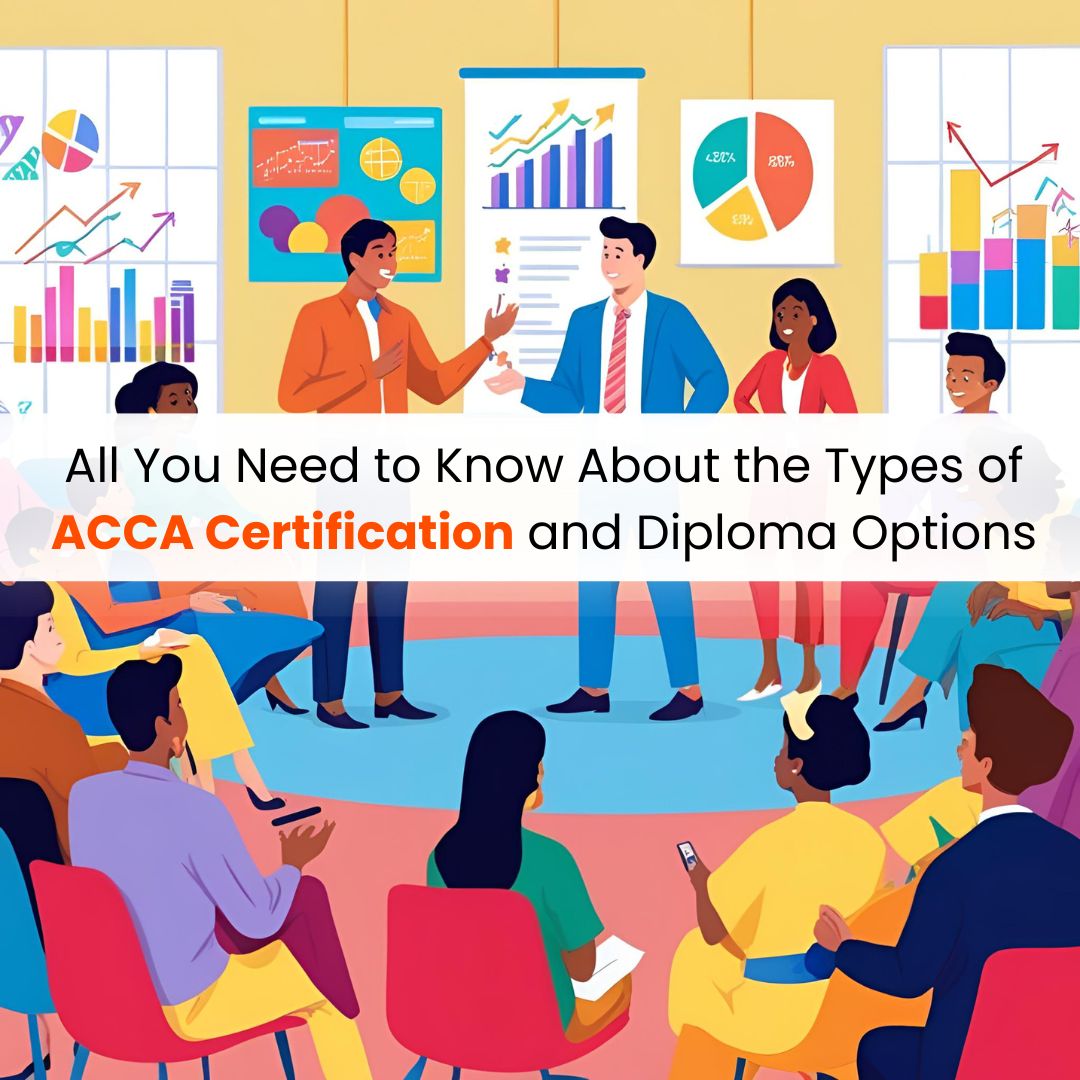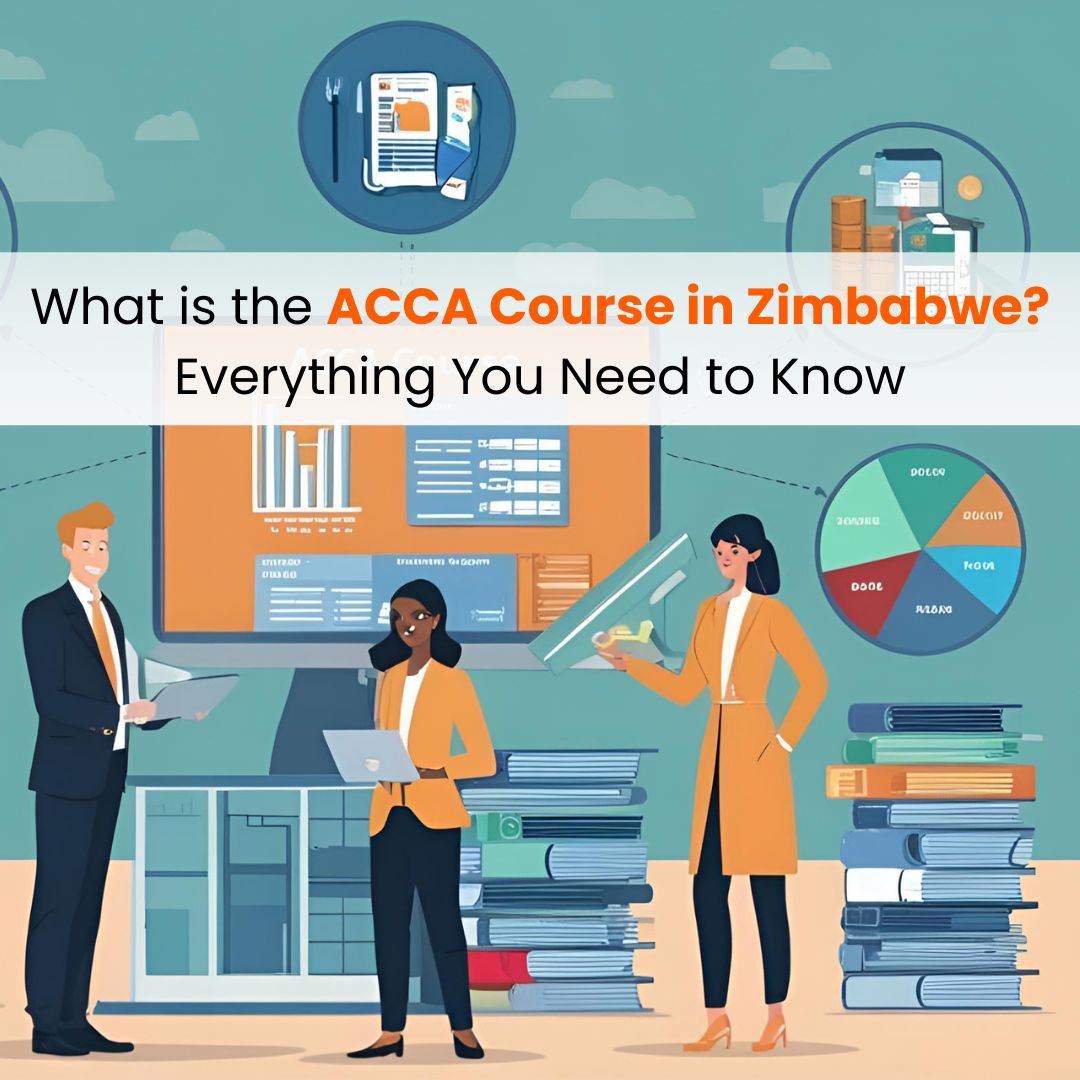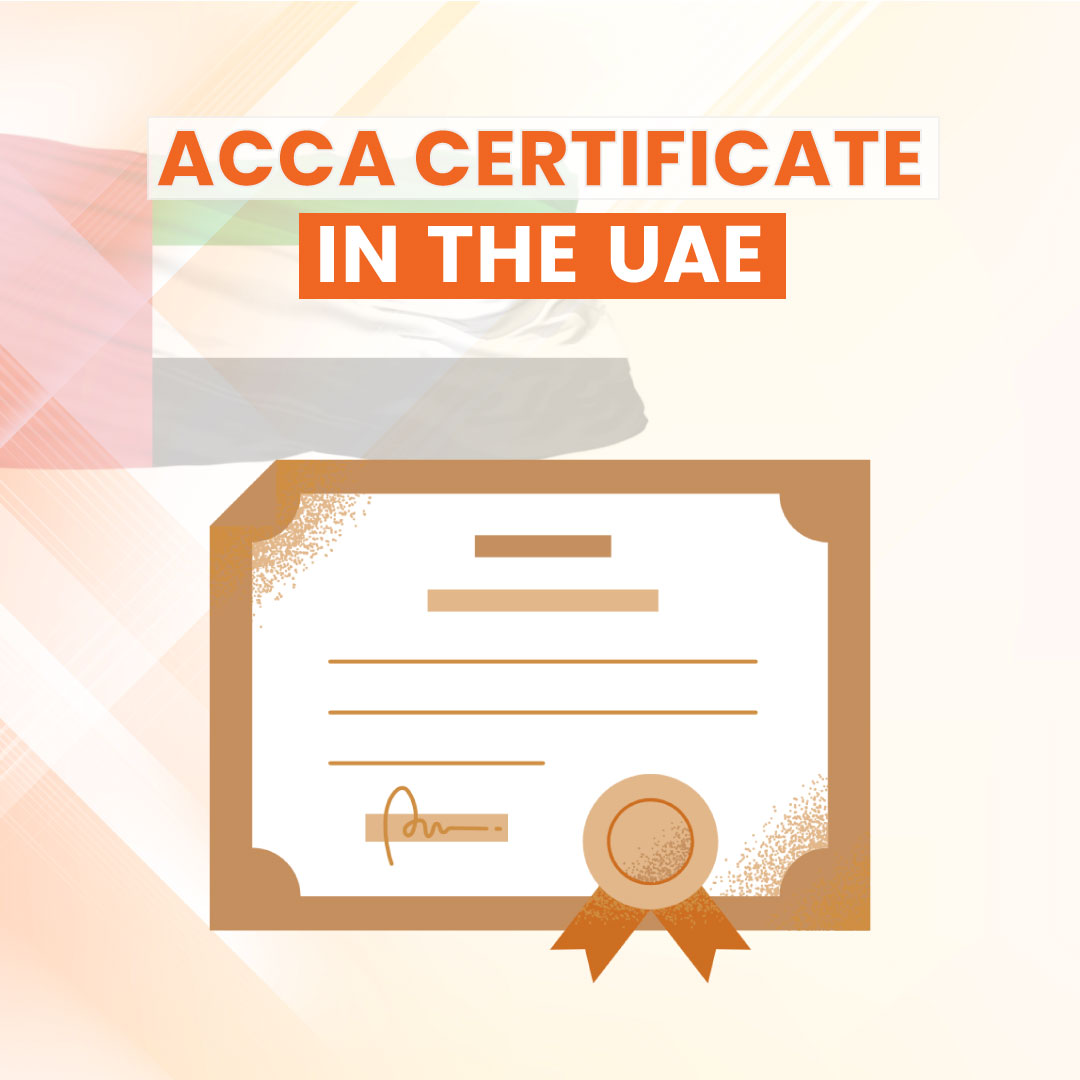Overview:
The changing accountancy trends and fast skill development need professionals to stay ahead of industry trends. But how can they do that without the right qualifications? It will need additional education such as diplomas and certifications. In this regard, the Association of Chartered Certified Accountants is the best globally recognized body. In this article, we explore different types of ACCA certification, ACCA diploma options available, how students can achieve them, their duration, and the benefits they have. Read on to discover all you need to know.
What Are ACCA Certification and Diploma Options?
ACCA Certification
ACCA certification is a mark of excellence in the accounting profession. The structure of the certification program is designed to offer a comprehensive education through different levels, including applied knowledge level, applied skills level, and strategic professional level. Each level builds on the previous one and ensures that students develop a deep yet comprehensive knowledge of accounting and finance. Moreover, certification signifies that an individual has met the standards of academic and professional proficiency.
ACCA Diploma
Diploma programs are designed for those who already have some foundation knowledge and wish to further specialize in that area. Diplomas are highly valued in today’s job market. Ideal for professionals looking to refine their expertise and gain an edge in their ACCA career.
The ACCA diploma is an advanced qualification that focuses on practical applications in accounting and finance. For instance, the ACCA diploma in accounting and business is designed for individuals who aim to blend technical accounting skills with business.
Certifications and diploma options for ACCA
The Association of Chartered Certified Accountants (ACCA) offers a variety of certifications, diplomas, and qualifications to suit different levels of expertise. Here are the main types:
ACCA Qualification (Chartered Certified Accountant)
The main qualification that leads to ACCA membership. It comprises three levels:
Applied Knowledge (Introductory level), Applied Skills (Intermediate level)
Strategic Professional (Advanced level)Requires completion of Ethics and Professional Skills Module and Practical Experience Requirement (PER).
Foundations in Accountancy (FIA) Certifications
This certification is for beginners in accounting. It includes an introductory Certificate in Financial and Management Accounting, an Intermediate Certificate in Financial and Management Accounting, and a Diploma in Accounting and Business (A stepping stone to full ACCA Qualification)
ACCA Diplomas
This Diploma in Accounting and Business covers business and financial accounting basics. The Advanced Diploma in Accounting and Business prepares candidates for the Strategic Professional level of ACCA Qualification.
ACCA Certificate Programs
- Certificate in International Financial Reporting (CertIFR) for professionals dealing with IFRS.
- Certificate in International Auditing (CertIA) and focus on international audit standards.
- Certificate in Business Analytics covers data-driven decision-making.
- Certificate in Digital Innovation for Finance for understanding finance in the digital age.
ACCA Postgraduate-Level Qualifications
Oxford Brookes University BSc (Hons) in Applied Accounting is available to ACCA students after passing certain exams, MSc in Professional Accountancy (University of London). This is an advanced qualification for ACCA members.

today!
Duration of Certification and Diploma Programs
The duration of ACCA programs varies depending on the candidate’s prior qualifications, study mode, and commitment level.
ACCA certification
For candidates with no previous accounting background, achieving an ACCA certification can take anywhere between three to five years. This timeline allows for the completion of all examination modules, practical experience requirements, and additional professional skill training.
ACCA diploma
If candidates already possess a foundational level or related degree, the diploma can be completed in a shorter period. On average diploma programs might take between one or two year of focused study.
Accelerated Programs
Some institutions offer accelerated learning paths or part-time courses, enabling dedicated students to complete their ACCA studies faster. These options are particularly beneficial for those who wish to make a swift transition into an ACCA career or advance rapidly within their current role.
Benefits of getting ACCA diplomas and certification
- Improvement in employment opportunities
- Versatile career path
- Global Recognition
- Continuous professional development
- Enhanced skills and technical knowledge
Conclusion
To conclude that getting ACCA certification, an ACCA diploma, or a full ACCA qualification can be a transformative step. However, it’s not only a way to move forward in accounting and finance, but it also helps in professional development. With flexible study options, comprehensive syllabus and focus on professional development ACCA and certification related to it remain the valuable credential in field of accounting and finance.
Frequently Asked Questions
What distinguishes an ACCA Qualification from an ACCA Diploma?
The ACCA diploma, such as the ACCA Diploma in Accounting and Business, is frequently a more focused program that emphasizes particular areas of accounting and its practical applications. On the other hand, an ACCA qualification is a thorough accreditation that covers a wide range of topics in the ACCA syllabus and calls for both academic and real-world accomplishments, such as finishing the Professional Skills module and passing the ACCA tests.
How long does it take to complete the ACCA Certification or Diploma?
The duration of both these varies. ACCA certification can take between three to five years to complete for individuals starting from scratch. While acca diploma may take one to two years if candidates have a foundation of accounting education.
Can I study ACCA courses while working full-time?
Yes, ACCA programs are designed to be flexible. Many candidates continue their studies part-time while working, allowing them to gain practical experience alongside their academic progress. This flexibility is a key advantage for building a successful ACCA career.
How does the ACCA professional qualification enhance my ACCA career?
The ACCA professional qualification is highly regarded in the industry. It not only validates your technical competence but also demonstrates your commitment to continuous professional development. This qualification can lead to better job prospects, higher salaries, and more significant career advancement opportunities.



